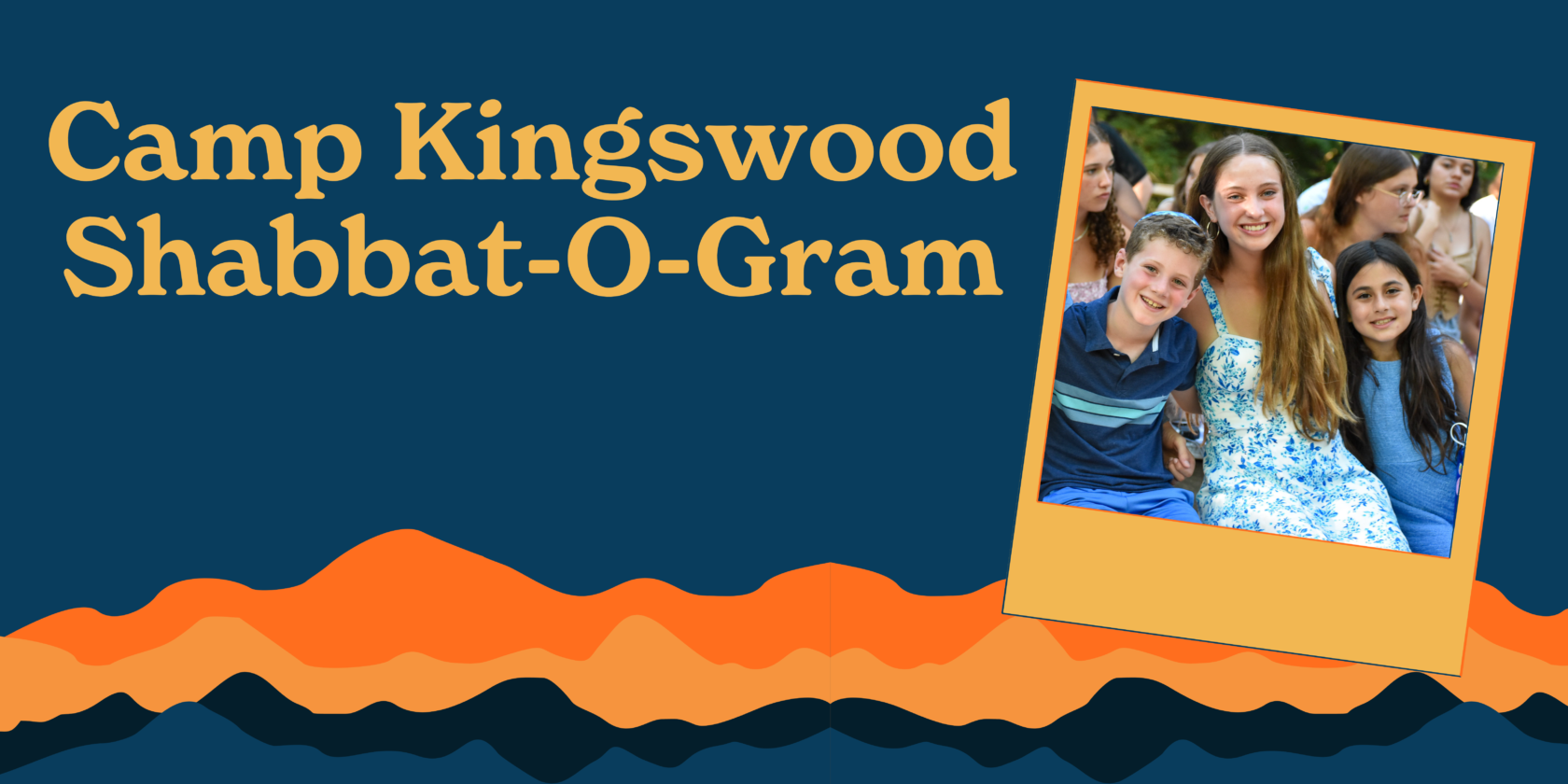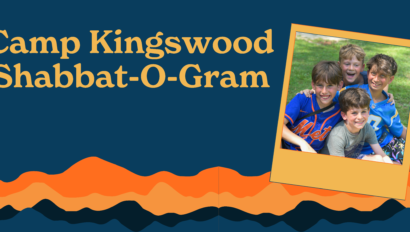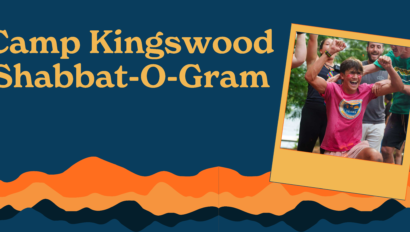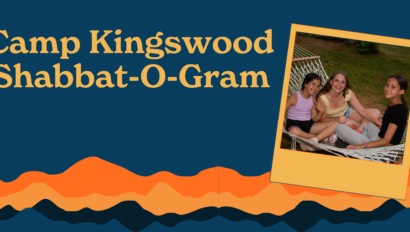Shabbat-O-Gram: 5/23/25

Dear Kingswood Families,
On the first night of camp each summer, after each bunk has created and signed their Bunk Agreements, everyone gathers together on the Waterfront for Opening Campfire. Before our final song of the night, I close by talking about the importance of their stories. How each summer they return to camp is a new chapter in that story, and that their life story is theirs to write.
Every day they get to decide who they want to be. They can choose to be the hero or the helper, the friend or the leader. They can choose to show up with courage, compassion, and care, regardless of what’s coming their way.
They can choose to be hardened by hard things, or to let those same moments shape them into someone stronger, kinder, and more real.
That belief—that we hold the power to write our story—is one of the most sacred lessons we teach at camp. It’s been on my mind this week, because when violence steals lives, stories are cut short.
Like the stories of Sarah Milgrim, 24, and Yaron Lischinsky, 26, who were murdered this week outside the Capital Jewish Museum, a museum celebrating Jewish life, culture, and history.
Sarah grew up in Kansas. She radiated warmth and purpose, working at the Israeli Embassy in D.C. where she met Yaron. She had a deep commitment to peace and her parents described both her and Yaron as, “always on the cause of what’s right.” Her friends say she made people feel seen. Feeling seen and connected—that’s the language we use at camp. Sarah sounds like she would have been an awesome camp counselor.
Yaron was born in Germany and made aliyah as a child. He served in the IDF and had just begun his diplomatic service representing Israel. He’s described as thoughtful, musical, kind, and deeply committed to building a life of meaning. He was about to propose to Sarah in Israel on an upcoming trip.
This is just a glimpse of their lives, now reduced to headlines. At a time when the world seems to be hardening around us, reading about the individual people and remembering their stories feels like an act of resistance. A way of refusing to let people be defined by the violence done to them, and a way to honor the life that could have been.
At camp, we build a community that values each person’s story—where our kids learn to listen with curiosity. To ask questions of bunkmates who may go to a different kind of school, or live in a different country. When we talk about courage, yes, it’s about climbing the tower or jumping in the lake, but it’s also about waking up each day committed to being resilient and proud of their identity, regardless of what’s in front of them.
After weeks like this one, I have to remind myself of the lesson we teach our campers – we can’t always choose what happens, but we can choose how we respond. We can let hard things close our hearts, or we can let them deepen our resolve to lead with compassion.
This Shabbat, I’m holding Sarah and Yaron’s families in my heart. And I’m holding all of us, as parents, in the quiet weight of this moment. Because our kids are watching—not just what we say, but how we carry what’s hard, and man, it’s heavy.
We don’t have to have perfect answers. But we do have the chance to show them what it looks like to stay human even when the world feels anything but.
Shabbat Shalom,
Jodi


